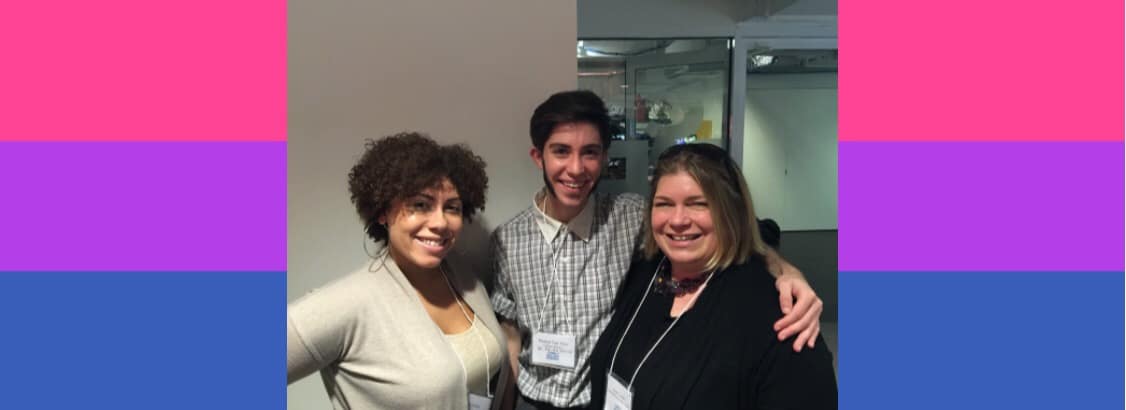It’s #BiHealthMonth and We Need Paid Leave!

By Preston Van Vliet
March is Bi Health Month! Bisexual Resource Center and BiNet USA are two organizational partners we work with to help raise awareness about the unique health challenges that bisexual people face. And since Family Values @ Work is chock full of people who are either bi or who experience attraction to multiple genders, it makes sense for one of us to talk about it.
The language I use to describe my sexuality varies daily: some days it’s just easier to identify as bisexual when talking to the straights; “queer” works when I’m in the community, but internally I pretty much always think of myself as pansexual. Either way, I see myself as part of the bisexual community. For the rest of this piece, I will refer to the bisexual community (including queer, pansexual, and other people who are attracted to more than one gender) as the bi+ community.
It’s important to note that there is inadequate data and research out there that looks specifically at race and bisexuality. White bi+ communities have white privilege and this privilege impacts their experiences of their sexuality. The racism that bi+ communities of color face impacts their experiences of their sexuality.
It’s challenging for me to talk about my experiences with understanding my pansexuality as a kid and teenager because of my experiences as a trans person who came out in my early twenties. I felt shame in high school both about my body and my sexuality. I developed several eating disorders and ended up quitting sports because of how these shames got tangled up with each other. I tried to start seeing a therapist when I was 16 but each of the three therapists I saw all made me feel worse about being pansexual. I wasn’t taking good care of my body; I was making risky decisions about my sexual health; and I had no idea how to address the mental health concerns that was threaded through all of it.. I didn’t know how to talk about these things to anyone.
My experiences are part of the larger experiences that bi+ communities face. Bi+ people experience stigma from straight communities AND gay communities. Stigma impacts our mental health and our sexual health, which ultimately hasve huge consequences for our physical and psychological well-being. The Movement Advancement Project has a great report compiling data about bi+ people in which I found these statistics:
- Bi+ women are sexually assaulted at higher rates than straight or lesbian women.
- ⅔ of cisgender LGB parents are bi+
- Bi+ adults have higher rates of disability than the general population
- Bi+ adults have lower incomes than gay & lesbian communities
We need paid sick days for routine health care like cancer screenings, STI testing, and for accessing mental health care — whether seeing a therapist or a psychiatrist, or in taking time off of work to rest for your mental health. Bi+ communities need paid safe days to seek services and safety after experiencing sexual assault. Bi+ parents need paid family & medical leave to create and care for their families. And we need these policies to cover all of our meaningful relationships, like our chosen families.
Actions you can take to support bi+ communities and our families!
- Get involved with campaigns in your state! Look up our coalition partners in your state here.
- Get involved with us to fight for a federal paid family & medical leave law, the FAMILY act!
- Read our joint report with Forward Together and A Better Balance here to learn more about how LGBTQ communities need paid leave.